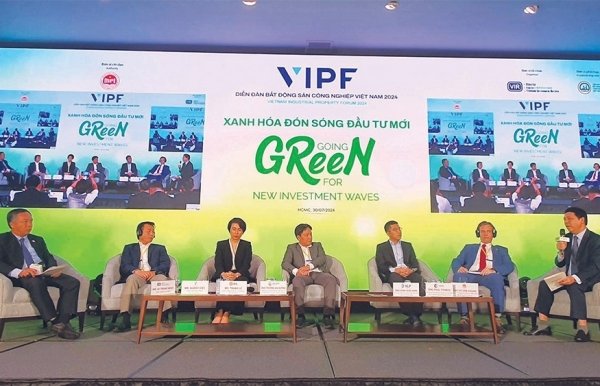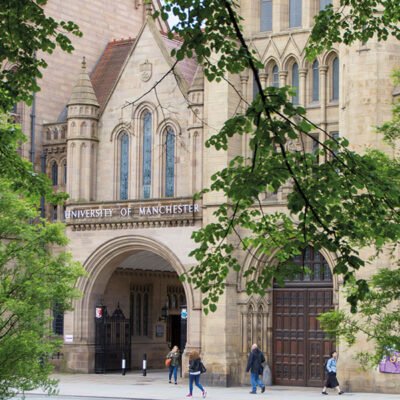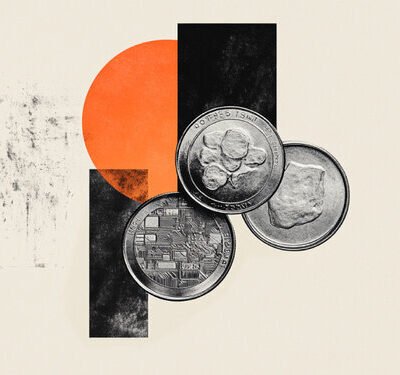Vu Van Chung, deputy general director Foreign Investment Agency Ministry of Planning and Investment
 |
Vietnam has plenty of competitive advantages in attracting investment from other countries. And today, instead of previously attracting investment based on cheap labour, Vietnam now focuses on higher-quality investment thanks to the improved quality of labour.
In terms of policy, the strategic breakthroughs of the government are being improved every day. Particularly, road and aviation infrastructure has been developing remarkably, and railways will be done in the future.
Currently, the government is resolutely continuing to reform institutions and improve the investment and business environment. The government has established working groups to work directly with investors in new industries such as semiconductors, AI, and high technologies, as well as discuss and propose policies to support investors. In particular, the government has established a working group to realise the goal of training 50,000 semiconductor engineers by 2030.
In 2023, foreign direct investment in the first seven months of the year increased by nearly 11 per cent on-year, and over 70 per cent of this was in the processing and manufacturing sector. This is a once-in-a-lifetime opportunity to draw in high-quality investment, and an opportunity for the industrial real estate market to develop explosively.
To increase the attraction of the semiconductor industry in particular, the Ministry of Planning and Investment is building a mechanism of selective investment. Currently, we are building a decree on the establishment and management of an investment support fund, including incentive mechanisms for the semiconductor industry, and supporting local enterprises in Vietnam’s crucial industries. We are reviewing current incentive policies to focus on key industries and sectors.
If these incentive policies are approved by the National Assembly, I believe that it will be very attractive for foreign investment mobilisation, as well as promote the development of the industrial real estate market.
Vuong Thi Minh Hieu, deputy general director Department of Economic Zone Management, Ministry of Planning and Investment
 |
Since 2014, with support from various investors, the Ministry of Planning and Investment (MPI) has piloted the eco-IP model as part of Vietnam’s National Green Growth Strategy.
The MPI has been at the forefront of new models in response to the green growth strategy. Specifically, newly established IPs must meet international production standards, ensuring material and energy efficiency while reducing environmental emissions.
Various decrees for the first time legally incorporated eco-IPs into Vietnamese legislation, and introduced new policy aspects for eco-IPs certification and recertification. Since then, the concept has been embraced by the investor community and expanded to key localities like Haiphong, Dong Nai, and Ho Chi Minh City.
The policy aspects include enhanced responsibilities for infrastructure investors, such as connecting secondary businesses through a material management system, and increasing state oversight. The decree also requires investors to allocate land for social housing to support workers.
The MPI has also been pioneering in establishing new eco-IPs from the outset. Specifically, the development of new models is undertaken from the planning and design stages, forecasting symbiotic networks, and developing strategies to attract investment into eco-IPs.
However, there are some obstacles in the green transformation process concerning eco-IPs. Firstly, some industry-specific guidance documents, such as those on water and energy reuse, are still lacking. Consequently, industrial symbiosis and connections between businesses for implementing eco-IPs remain challenging.
Secondly, the incentives for infrastructure investors involved in transitioning to green IPs are not yet aligned with the expectations and efforts of businesses.
Additionally, Vietnam does not yet have legal documents at the legislative level to govern IPs and economic zones. In the short term, the MPI will coordinate with relevant ministries to expedite the issuance of guidance documents, accelerate the implementation of industrial symbiosis networks, thereby promoting circular economy practices and the transition to eco-IPs.
In the long term, MPI is preparing a proposal for developing IPs and economic zones and raising their regulatory framework to a legislative level, including new models like those in Danang. Furthermore, we also propose strengthening the delegation of authority to local agencies to act as one-stop governance bodies to oversee, manage, and drive the development of IPs in line with government directions.
Trang Le, head of Research and Consulting JLL Vietnam
 |
In recent years, the rapid development of Vietnam’s real estate sector has been a source of pride, with foreign direct investment growth reaching 34 per cent in 2023, compared to the global foreign investment growth rate of only 3 per cent. Despite a global slowdown, Vietnam remains a standout.
Key industries such as electronics and textiles have significant development potential, particularly if they transition to greener production methods. Vietnam should leverage its strengths, focusing on greener and more automated development.
The semiconductor industry, which is a hot topic globally, presents challenges in terms of Vietnam’s capacity to absorb such investments. JLL commends Vietnam’s progress in green transition legal frameworks but stresses the need for more decisive actions. As other countries advance quickly, Vietnam must implement greener solutions and improve legal and procedural frameworks to maintain its competitive edge.
Vietnam is in the beginning phase of piloting eco-industrial parks. However, there remain many challenges to putting the model into practice. In particular, there is a lack of financial support for investors, given that the green transition requires a huge investment in the initial phase. The private sector has spent on green transition. However, it is not an easy task to replicate this model. Another challenge is a shortage of comprehensive policies.
Clearer and faster regulations are needed to help investors navigate changes and make prompt decisions. Otherwise, in about two years, they may have already directed their investments to other countries.
Truong Gia Bao, vice chairman and general secretary, Vietnam Real Estate Association
 |
The awards have demonstrated a strong commitment to sustainable development and environmental protection. Industrial real estate developers have implemented various advanced measures, including the use of renewable energy, environmentally friendly building designs, and optimising production processes to reduce emissions and resource consumption.
The participating businesses have shown innovation and creativity in their business strategies. They not only focus on economic efficiency but also give deep consideration to environmental and social factors. Many businesses have invested in green tech, improved production processes, and carried out environmental protection projects, reflecting their long-term vision and responsibility to the community.
We extend our heartfelt congratulations and sincere thanks to all the businesses and investors who participated in this awards programme, which reaffirms commitment to building a more sustainable future.
Pham Phu Ngoc Trai, chairman, Global Integration and Business Consulting
 |
I appreciate the organising board in providing voting criteria that highlighted the economic benefits of compliance with environmental requirements and tech innovation.
I also appreciate the efforts of pioneering businesses in practicing sustainable development and greening the industry. Such businesses have contributed to laying a strong foundation for a more sustainable industrial development, and this is not only for us but also for the next generation.
We are the first generation to feel the effects of climate change and also the last generation that can take action to change this transformation process. Once again, thank you to the pioneering businesses.
Hopefully in the future voting rounds, the list of businesses participating in the voting will be longer with their more impressive contributions and achievements.
Industrial developers and businesses should continue to ensure compliance with environmental regulations to move towards sustainable development and international integration.





